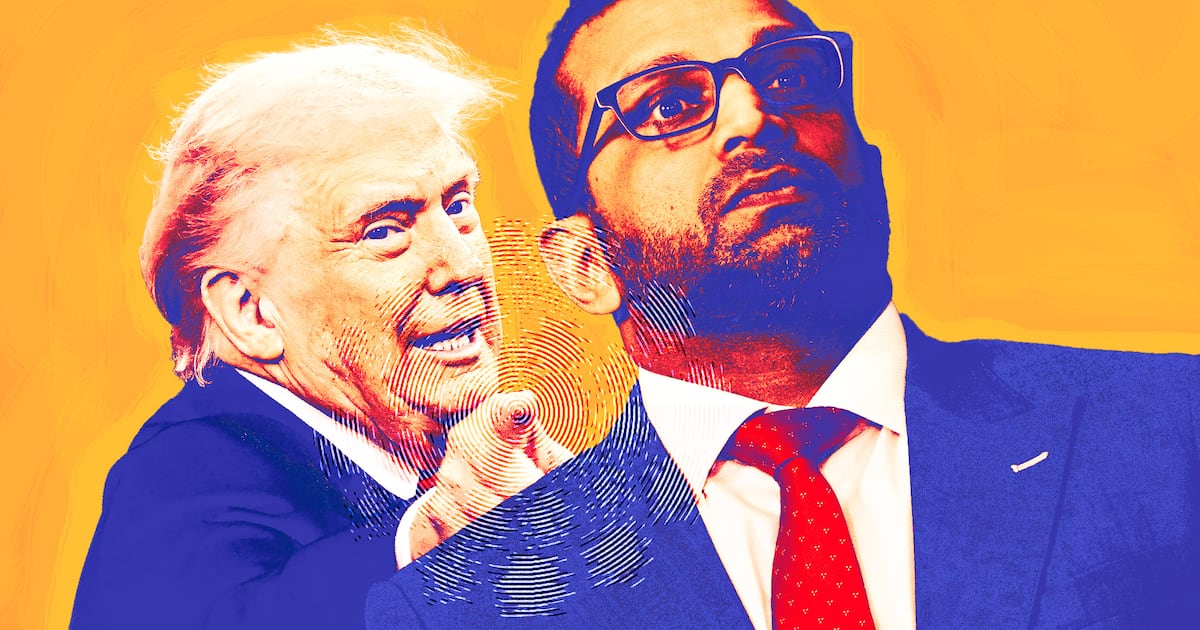Stephen Colbert is no David Letterman.
Sure, Colbert can do irony; he can mercilessly mock those deserving of mockery, and satirize the powers that be; and he can aim a sharp barb at a politician or a movie star or a network president; and he is more than happy to make a fool of himself.
But, at least during Tuesday night’s much-hyped debut of the Letterman show’s successor on CBS, The Late Show With Stephen Colbert, there was nary a sour whiff of the world-weary psychic struggle, the undercurrent of self-flagellating insecurity, or the deep suspicion of human motives that fueled Letterman’s comic genius and also stoked, especially in the latter years of his more than three-decade career as a talk show host (including 22 years on CBS), his legendary discontent.
Instead, Colbert is a joyful jester—not a standup comic, but an all-singing, all-dancing performer with a sweetly magnetic smile.
Although he tried out a few setups and punchlines, he is not, at bottom, a joke-teller. Indeed, he seems to have minimal interest in performing a monologue night after night, and managed to get through his first show quite happily without one.
For his debut as the star of CBS’s 11:35 p.m. franchise, Colbert literally twirled onto the stage, high-kicking with his Louisiana-born bandleader, Jon Batiste, as the audience leapt to its feet and chanted “Stephen! Stephen!”—a holdover tradition from the Comedy Central program in which Colbert, for nine years, adopted the persona of a know-nothing right-wing blowhard.
“I used to play a narcissistic conservative pundit—now I’m just narcissistic,” Colbert joked to Republican presidential candidate Jeb Bush, who, following George Clooney as the second guest on the premiere, expressed surprise that there were so many images of Colbert’s face adorning the freshly redecorated Ed Sullivan Theater—which now features a vertiginous dome that is the showbiz answer to the Sistine Chapel.
Note to Donald Trump: Jeb was decidedly high-energy during his appearance, a quality that might have been overlooked amid the atom-splitting energy that Colbert brought to the new gig.
Colbert, who as everyone knows is politically savvy—he once launched his own presidential campaign PAC, and his sister Elizabeth ran unsuccessfully for Congress as a Democrat against disgraced former South Carolina governor Mark Sanford—even prompted George W. Bush’s younger brother to make some news.
Colbert asked Jeb how he’d differentiate himself from the 43rd president.
“I think my brother didn’t control the Republican Congress’s spending,” Jeb said, noting that when he himself was governor of Florida, he was such a fiscal conservative that his treasured nickname was Veto Corleone. “He should have brought the hammer down... Our brand is limited government. He didn’t veto things. He didn’t bring order and fiscal restraint.”
One can only imagine the tense fraternal encounter that will result from that particular revelation.
With his first-ever guest, Clooney—who, as usual, was far too charming, amusing, and affable for his own good, the perfect extra man at a black-tie dinner party—Colbert explored the superficiality of celebrity.
“We don’t know each other,” Colbert told Clooney, after noting that he wasn’t invited to Clooney’s wedding last year to international human-rights lawyer Amal Alamuddin. “I don’t know you, but I wanted to give you something,” he added—handing over a robin’s egg blue Tiffany box.
When the goateed, mustachioed Clooney opened the wedding gift, it turned out to be a silver paperweight engraved with the words, “I don’t know you.”
“You can pass that on to another celebrity that you don’t know,” Colbert suggested.

On his Comedy Central show, even in character, Colbert displayed mad skills as an interviewer, actually listening and reacting to what his guests had to say—occasionally exposing the fallacy of their arguments—and that talent will doubtless serve him well in his current occupation.
There were, of course, several prepared comedy bits on the inaugural program—some more successful than others. A recurring set piece involving former B-movie actor and current CBS chief executive Leslie Moonves, sitting in the front row with a contraption that supposedly allowed him to interrupt the Colbert show with clips from The Mentalist, was kinda funny the first time and kinda stale the second time and lethally leaden the third time.
Another shtick, in which a sinister-voiced satanic presence demanded that Colbert keep doing ads for a particular brand of hummus, was just plain weird.
More winning, at least for this viewer, was a bit in which Colbert illustrated the media’s unreasoning obsession with Trump by gorging on Oreo cookies (which candidate Trump had declared he’d never eat again after the brand moved its factory to Mexico). That, at least, presented the host with an opportunity to display his knack for physical comedy—messily downing the cream-filled cookies until he emptied a whole package of them onto his electric blue suit.
The premiere opened with Colbert in various venues—a Little League game, bowling alley, a factory, etc.—crooning The Star-Spangled Banner, and in a manner that was far more celebratory than ironic; the real Colbert is a bit of a patriot and also a bit of a softie.
Also in the mix was a cameo appearance on screen by Colbert’s NBC competitor, Jimmy Fallon, who wished him: “Have a great show, buddy”—a public sentiment that would have been unthinkable during Letterman’s bitter rivalry with his arch-nemesis, Tonight Show host Jay Leno, who, Letterman’s supporters long believed, stole his rightful crown as Johnny Carson’s heir apparent.
“I bow to no man in my fandom of David Letterman,” Colbert told his audience in a fitting and heartfelt homage to his predecessor. Letterman, he added, left a high mark “on the door frame that we all have to measure ourselves against.”
It’s early days, of course, but I won’t be surprised if Colbert, who seems well suited to the task, ultimately leaves his mark on high.






